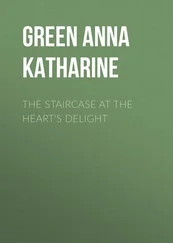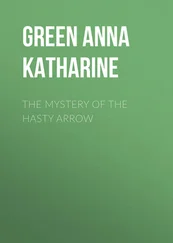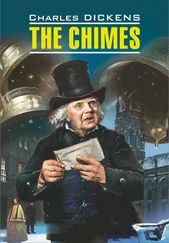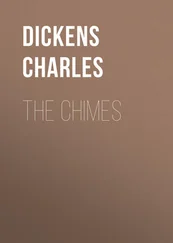I try to keep my eyes down. We follow Martha to the end of the many-arched corridor and through a set of windowed double doors. Then down a long, echoed marble hall and three flights of stone steps and into a long, cold corridor.
The floor is polished from many feet, and the echo tells me we are below ground. The corridor stretches ahead, and as we walk along it, I begin to hear noises. Water boiling. Feet shuffling. A curt voice calling out rapidfire orders. The ringing sound of someone chopping firewood.
A few steps from the corridor’s end, there is a narrow wooden door, and a stairwell that presumably leads back up into the light. Martha pushes us toward the stair and up the first few steps.
‘All of the kitchen staff live extramural,’ she says, somewhat out of breath. ‘They leave before Vespers.’ She turns to me. ‘Did you see that door down there?’ she asks.
I nod yes.
‘That’s the coldstore,’ she says. ‘When the other staff leave, hang back. Hide in there. It may be a few days, but Sonja will come for you.’ She hands me a mettle key. Then she pushes us before her, back down the few steps and through the open arched doorway.
The kitchen is dark and my first impression is of unformed shapes buzzing sharp and purposeful. Rich meat smells. Sharp bursts of laughter. And the heat of several fires. A thickset man in an oilspattered apron walks up to us. He speaks an order to Lucien, and when Lucien does not move, he pushes him forward with a rally of impatient blows, towards the end of the room, where there are sinks piled with dirty dishes.
A small woman walks up and speaks to Martha. When she has had her words, she grabs me by the shoulder, as if convinced I am blind also, and propels me forward with a sharp push towards another sink and an enormous pile of potatoes.
It is a stretched and sleepy afternoon in spite of the grip of fear beneath. The repetitive task and the noise and the sun coming in through the low grates and I find myself several times almost falling in sleep. I look for Lucien, but he has been shifted from washing dishes to some other chore and I cannot see him anywhere. Each time I pause in my task, I see the small woman’s eyes on me, measuring. The day is broken only by the tolls of the Carillon.
At one point in the long afternoon a magister enters. The silver of the Lady spills into the kitchen and at first I don’t understand it. I feel rather than hear the shrinking back of the kitchen staff against the walls. The faces people wear while working, the unguarded resting expressions of humour, irritation, boredom, each goes inward and closes, and a conscious hush comes from each so that their silence is somehow joined.
The magister treads out onto the silence like it’s a cloth beneath his feet. A small man, but the glow of white from his robes seems somehow immense in the unlit room. I cannot tell if this is a routine visit or not. Their eyes and faces do not offer any clue. When the magister speaks, his voice is fine and steady in pitch. Not forte or piano, but a carefully graded middle tone that does not strain.
‘There will be ten more of us for supper,’ he says. He looks to the thin woman who spoke to Mary when she brought us in. ‘Please open the additional bottles beforehand. And we will need an extra server, I think. Somebody presentable.’ That light tone, even, calm sends a shiver down my back. His milky eyes move lento across the kitchen, over my face. Then he walks a few steps forward and points to a boy beside me. ‘He will do.’
The mountain of potatoes never shrinks. It’s a toll before Vespers when a bright little melody flutes through the kitchen. It is clear what it means. All around me people step back from their tasks and stretch bodily. Subito the workers who have blended into their chores and the shared rhythm of the kitchen take their own shapes and movements. I watch a tall, thin girl pile kindling and coal in the mouth of the largest oven. Two boys push a wheeled trolley laden with meat back out into the corridor. The man who shoved Lucien counts knives back into a safe in the wall. I feel Lucien then. He is standing a few yards away, hanging polished copper pots of all sizes on a huge pendant iron rack above the central fire. I wait.
In pairs, the workers remove aprons and take their turns at the sink to wash their grimed hands. They leave by the sole corridor, talking, humming, laughing. I imagine them going out through that vast blank gate and back into their streets and homes, and it makes me feel stronger. The kitchen is half empty when I nudge one of the peeled potatoes at the bottom of the vast stack and the whole pyramid collapses. Potatoes bounce and roll like marbles over the scrubbed tiles and I swear convincingly.
Lucien and I on hands and knees. It’s empty enough in the kitchen now that nobody thinks to remark on how a blind prentiss can put his hands so unerringly on the scattered potatoes.
It’s after and we are standing in the freezing dark of the coldstore. Whole pigs hang from mettle hooks beside us. The candle’s shadows bloat and swell the lines of their flesh. I examine my blisters by touch. Walk round to see if there is anything we can use for blankets. Lucien, slid into a crouch against the wall, removes his blindfold with a grimace of relief and watches me. When Vespers comes, it is both strangely the same and entirely other. How to explain? The sounds come down from such dread proximity above our heads. Almost as if they are in the same room. I feel them in my body, but the resonance slides off from me. Like I am covered over in a sheet of clear para, it cannot touch. I follow Lucien’s solfege right through and my body never seizes.

What makes me wake is Lucien’s arms tensed tight round my chest. I hear that he is awake and listening. I hear the slow sound of mettle on mettle. A key in the lock and the handle turning.
Lucien’s grip tells me to keep still. We’re in the corner of the coldstore. Between us and the door there are several ranks of shelves piled with dry goods. We lie in the dark. There is the hungry hiss of a match and a glow of light catches and blooms. A bare few footsteps and our small dark corridor is filled with candlelight. Lucien swears, shields his eyes and sits up.
Martha stands there. She is out of breath, and her face has changed. It is fixed, and her eyes move in it like things trapped.
‘Where’s my sister?’ asks Lucien.
‘Not safe for her to come,’ says Martha. ‘Now that the magisters know you’re in the city, they are watching her. We can’t wait either. We need to move.’
The cold presses in on us and I have the same feeling I had in the dead room. Like something dark and heavy is sitting on my chest.
‘What do we do now, then?’ I ask.
‘You come with me,’ Martha says.
‘Where?’ asks Lucien.
‘Somewhere she thinks you’ll be safe for a while. Safer than here.’ Then she sings a tune in her stout voice. It’s short and it plunges and winds. I see Lucien following it, dredging through memory, piecing the directions together. He waits and looks up at Martha.
‘She’s serious?’
Martha nods.
‘The novice cells?’
‘That’s what she told me.’
‘I hope to hell she’s right,’ says Lucien. ‘We could not get any closer to the Carillon.’
Martha gestures for us to take off our shoes.
‘Never quieter, boys. Never quieter in your lives,’ she says. ‘You don’t touch the ground. You float.’
We follow her down the same stone corridor we came in on. But instead of continuing back to the garden, Martha turns left and down another two flights of stairs. Then through a series of corridors and down further flights, getting lower and lower until we enter a long, straight hall. It’s being used for storage — there are shelves filled with scores lining the walls.
Читать дальше
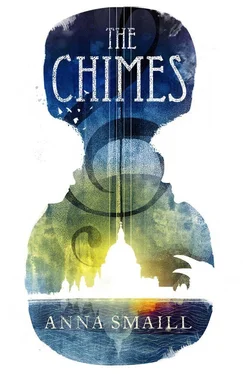


![Чарльз Диккенс - Колокола [The Chimes]](/books/395589/charlz-dikkens-kolokola-the-chimes-thumb.webp)




